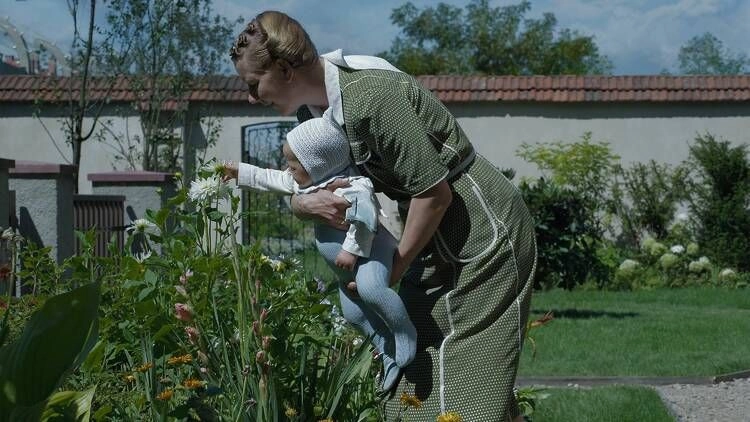Extraordinary story from Nazi Auschwitz camp 'The Zone of Interest'
In 'The Zone of Interest,' director Jonathan Glazer depicts a family residing in luxury adjacent to Auschwitz, the site where the Nazis carried out mass extermination of Jews

EXCLUSIVE BY MURAT OZTEKIN — British director Jonathan Glazer, in his movie "The Zone of Interest," takes inspiration from an event that took place in World War II to create a striking film that highlights humanity's insensitivity to evil.
Adapted from the novel of the same name by author Martin Amis, the film stars Sandra Hüller, Christian Friedel and Ralph Herforth.
The persecution of Jews in the last century has been a recurrent theme in countless movies. Among these works, classics like "Schindler's List" and "The Pianist" have made powerful impressions, but a frequent portrayal of the subject has diluted its impact over time.

Story inspired by Auschwitz
The movie is set in 1943, a time when the Nazis were executing their ethnic cleansing campaign with relentless force. Jews were being rounded up from every corner of the country and sent to the infamous Auschwitz camp, where they faced grueling labor and the horrors of the gas chambers. Amid this brutality, life continued for people living next doors. Rudolf Hoss, the camp commandant, and his wife Hedwig, together with their five children, have built themselves an idyllic home in Auschwitz.
The huge house complete with a garden and pool is staffed by many servants. Every day, behind the barbed wire walls of the house, screams ring out, guns explode and the ashes of cremated bodies fly into the air, but the commandant's family remains seemingly oblivious. The family goes about their lives as if everything is normal, celebrating birthdays and enjoying the pool. The facade of happiness is only disrupted when an administrative decision disrupts the calm atmosphere.

Different view of Nazi persecution
Director Glazer takes a different approach in this movie. The film opens with idyllic scenery, masking the grim reality of Auschwitz. The atrocities inflicted upon the Jews are not directly depicted on screen; instead, we hear the haunting voices of the massacred people in the background while we witness the subtle signs of persecution. In stark contrast, the Nazis are portrayed in their ordinary aspects of family life. In one particularly striking scene, the commander and his children stumble upon a Jewish object in a stream. Upon returning home, they meticulously clean up, spending an extended period scrubbing away any traces of their encounter.
This heart-touching narrative reflects the depths to which humaity can descend, presenting a frightening perspective from a different angle. The perspective inevitably draws parallels to the numerous ongoing human tragedies, particularly those unfolding in Gaza, which often feel like a tragic theater playing out before the world's eyes.
However, despite winning an award at Cannes, the production received mixed reactions. While it garnered high praise in the West, it also faced criticism for minimizing the atrocities committed by the Nazis, particularly through comparisons to the film "Jojo Rabbit."

There is no disdain here but events surrounding the death camp could have been explored in greater depth, with finer attention to detail. Strengthening the emotional aspect of the work could have provided a more profound impact on the audience.
On the other hand, extending the story to Italy shifts the focus to another aspect, somewhat diluting the striking nature of the work. All in all, despite its shortcomings, "The Zone of Interest" refrains from being overtly provocative toward an audience already saturated with Holocaust narratives. It remains an effective film, albeit one that may resonate more strongly with a particular audience.
Source: Newsroom






